Musical Performance: Ta-ku & Wafia

Musical Performance: Ta-ku & Wafia
November 7, 2016 • “The two Australians’ chemistry is apparent the instant you hear their voices intertwined in song.” (NPR)
Photo: NPR


Musical Performance: Ta-ku & Wafia
November 7, 2016 • “The two Australians’ chemistry is apparent the instant you hear their voices intertwined in song.” (NPR)
Photo: NPR

Musical Performance: The Westerlies
November 2, 2016 • “The self-described “accidental brass quartet” swims comfortably in jazz, classical and pop music.” (NPR)
Photo: NPR
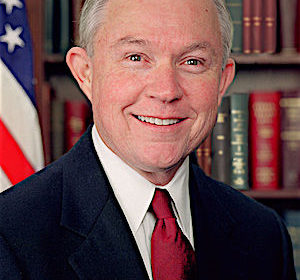
President Elect Donald Trump has chosen, much to the chagrin of liberal voices in government and across the nation, Senator Jeff Sessions (R) of Alabama, for Attorney General. Concerns over Session’s commitment to civil rights mount as old accusations of racism come to the fore.
The 69-year-old politician, currently serving his fourth term as a Senator, is a strong Trump advocate who has both praised and advised the President Elect on the campaign trail. And so the appointment is consistent with the Trump ethos, which puts a premium on loyalty. Session’s support was particularly important, since, as an established Republican Party apparatchik, his voice was useful in convincing others within the Republican Establishment to back the controversial outsider candidate. He also advised Trump to choose Mike Pence as his running mate. And Sessions is also a strong advocate of Trump’s controversial campaign proposal to ban on all Muslim’s entering the United States, which has angered many people the world over.
A trained lawyer, Senator Sessions has served on the Senate Judiciary Committee, and previously served as US attorney for the Southern District of Alabama, and as Alabama attorney general. As a staunch conservative, which comes as no surprise, he was one of President Obama’s biggest critics, and did his best to obstruct the outgoing President’s appointment’s and policies in the Senate.
In the past the Senator has spoken negatively about the landmark 1965 Voting Rights Act, and has called the ACLU and NAACP “un American” organizations. Staffers have reported that he’s used racially inappropriate remarks, and made positive comments about the KKK. This is a major issue since the Attorney General, as the nations “top cop,” is charged with enforcing civil rights legislation. Many fear the Trump Administration won’t work to preserve and protect civil rights, and the appointment of Sessions to this key cabinet position does nothing to assuage their concerns.
Learn about Trump’s Attorney General Pick (CNN)
Photo: Public Domain, Link – Wikimedia Commons
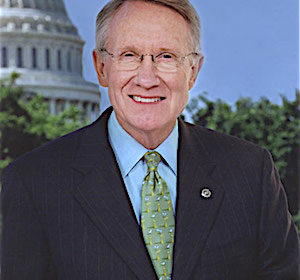
Donald Trump has selected Steve Bannon as his chief White House advisor, a position of great influence. This outrages many, because Bannon is linked to the “alt right,” which, according to many progressives, includes white nationalists, antisemites and many with Islamophobic and anti-woman views. Bannon was the former News Chief at Breitbart.com, a highly controversial, ultra-conservative blog, which many on the left associate with the alt right, extremism, and intolerance.
Harry Reid, the Senate Minority Leader, strongly opposes the appointment, and lead the charge in the Senate on Tuesday against it. Many Democrats spoke against Trump’s decision, and Reid implored the President Elect to rise to the level of his new office, and turn away from bigotry, by reversing his decision. Though the Democrats are displeased, many on the right are very happy with the appointment.
Learn about Harry Reid’s opposition to the Steve Bannon appointment (CNN)
Photo: By United States Senate – http://reid.senate.gov/, Public Domain, Link
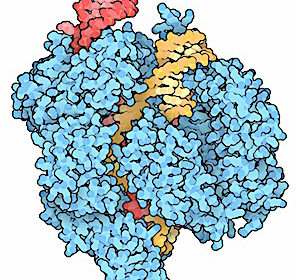
In a bold first, China has used the hot new genetic engineering technique, CRISPR/CAS9, on humans, to treat a particularly aggressive form of cancer. This may herald the start of a medical race between China and the United States, which could have profound, and potentially positive effects on modern medicine. But it’s not without risks.
CRISPR/CAS9 is a revolutionary gene editing technique, which scientists first learned about when studying the interaction between bacteria and the deadly viruses, called phages, which threaten them. With CRISPR, genes can be cheaply and quickly added and removed from the genomes of organisms. The method is very powerful, and has amazed the scientific community. But it’s not perfect.
The Chinese researchers used CRISPR to turn off a gene that inhibits the immune system in some cells extracted from a cancer patient. Then they cultured these genetically edited cells, and reintroduced them into the patient. The hope is that the genetically modified cells will fight the aggressive cancer and heal the patient. Preliminary results are encouraging but the trial is by no means complete, and the verdict is still out.
Harkening back to the early era of space exploration, in which competition between the United States and Soviet Union triggered a period of tremendous innovation and discovery, many hope that a similar spirit of competition may arise between the United States and China, two countries that lead in CRISPR/CAS9 research. Many positives, and a few negatives, may result from such a highly competitive environment between these two powerful and scientifically advanced nations.
Since CRISPR is a fast, efficient, and economical, way to edit genomes, medical researchers hope to cure a host of genetic ailments with the technique, including, but not limited to, many types of cancers. Of course, the prospect that this innovative technique could be used in the future to create designer babies, possessing desirable vanity traits, and the danger that an unexpected negative consequence might arise from CRISPR modifications, has generated concern among some. Therefore it’s wise to proceed with caution. However, the potential of this method to treat or even cure a host of serious diseases is high, and warrants further serious research.
Learn about China’s use of CRISPR/CAS9 in a human subject (Science Alert)
Photo: By David Goodsell – RCSB PDB Molecule of the Month, CC BY 3.0, Link
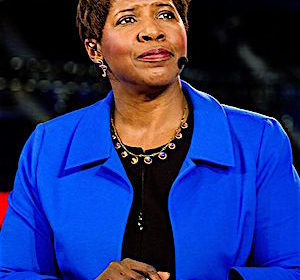
Gwen Ifill, the steady, trusted, highly competent journalist who hosted popular PBS news programs, like Washington Week and NewsHour, has died, following a long battle with cancer, at the age of 61. Ifill was highly respected, and worked during her career at important news outlets throughout the United States, including The Washington Post, The New York Times, and NBC News, before joining PBS.
Known for asking tough questions, and keeping powerful politicians accountable to the truth, she moderated Presidential Debates in 2008 and 2012, and a Presidential Primary Debate in 2016. President Obama has praised her competence, and commitment to her craft.
Learn More about Gwen Ifill’s passing (PBS)
Photo: Wikimedia Commons
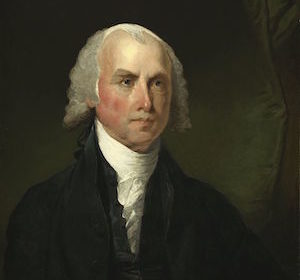
The Electoral College seems like a strange piece of political machinery. It side-steps the popular vote, inserting a second layer of voting between the straightforward popular vote, cast by ordinary citizens, and the election of the next President. Sometimes candidates win the popular vote, but lose in the Electoral College, so the next President is the candidate who actually lost the popular vote. This generally angers voters who supported the losing candidate.
This is exactly what happened during the most recent election this week, where Donald Trump won the Presidency despite being behind by about one million popular votes, and in the 2000 election George Bush beat Al Gore in this way, with a smaller difference. Cities and states don’t use a similar system to elect mayors and governors. For those races the popular vote is just fine. So why do we elect our Presidents in this strange and sometimes frustrating manner?
Early arguments for the Electoral College included the difficulties of relying on ordinary people on a large, scattered continent with 18th century communications, to choose the President, and also the difficulties of clearly discerning Presidential and Vice Presidential choices. But developments in inter-related political parties, and the 12th amendment, eliminated these issues by 1803. So why did the Electoral College persist?
Sadly the reason is mired in one of the nation’s most tragic institutions—-slavery. The Electoral College was part of a compromise drafted by the Founding Fathers that afforded the Southern Slave States a competitive advantage. At the Philadelphia constitutional convention, James Wilson of Pennsylvania had proposed a simple popular vote. But James Madison, of Virginia, recognized that this left the southern states, with a large population of non-voting slaves, at a distinct disadvantage to the northern states. A compromise was worked out using the Electoral College. Each slave in a given southern state would count as 2/5 of a person, and the resulting number would be factored into calculating the number of Electoral Votes for that state. This worked out well for the south, particularly Virginia, which dominated Presidential Elections early in the nation’s history.
But times have changed. The Electoral College has outlived its usefulness, and is, in fact, an artifact of slavery, which is a loathsome institution. The United States fought a long and bloody civil war culminating in an end to end slavery, and for decades Americans have strived for progress in the arena of civil rights for all citizens. It’s time to retire the Electoral College, and implement a simple popular vote, like we use for mayoral and gubernatorial elections.
Learn more about the origins of the Electoral College (Time.com)
Photo: Wikimedia Commons / By Gilbert Stuart – 1. Uploaded to en: by User:Csberger at July 7, 20052. National Gallery of Art, Washington, DC, Public Domain, Link –
| This work is in the public domain in the United States because it was published (or registered with the U.S. Copyright Office) before January 1, 1923. | |
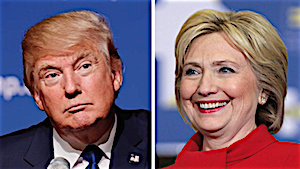
The management team of Face Activities would like our readers who voted in the U.S. Presidential Election to read this petition. Are you concerned that candidates, like Al Gore and Hillary Clinton, who clearly win the popular vote, lose Presidential Elections because they don’t win the Electoral College? If this seems unfair to you, and are interested in a clearer, more direct way to elect Presidents, then please consider this petition.
“On December 19, the Electors of the Electoral College will cast their ballots. If they all vote the way their states voted, Donald Trump will win. However, they can vote for Hillary Clinton if they choose. Even in states where that is not allowed, their vote would still be counted, they would simply pay a small fine – which we can be sure Clinton supporters will be glad to pay!
We are calling on the Electors to ignore their states’ votes and cast their ballots for Secretary Clinton. Why?…”
Read and Consider Signing this Petition (Change.org)
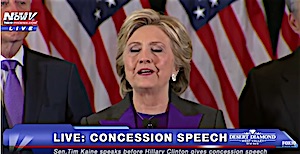
Watch Hillary Clinton’s Concession Speech
Photo: Fox 10 Phoenix / Youtube / screen capture
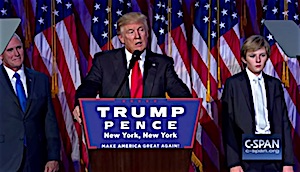
Watch Donald Trump’s FULL Victory Speech (C-SPAN)
Photo: C-Span / Youtube / screen capture